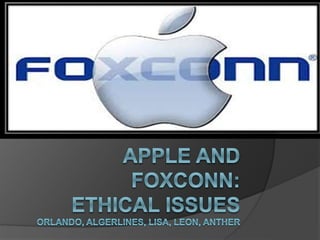Apple\’s Forbidden Words

Apple’s Forbidden Words is a topic that has gained significant attention in recent years. It refers to a list of words and phrases that Apple employees are advised to avoid using when discussing the company’s products or services. These forbidden words have become a subject of fascination and curiosity among tech enthusiasts and Apple fans. In this blog section, we will provide background information on Apple’s Forbidden Words and explore the reasons behind this approach by one of the world’s most successful tech companies.
Background on Apple’s Forbidden Words
Apple’s Forbidden Words has its roots in the company’s meticulous approach to marketing and brand image. The list consists of terms that Apple perceives as negative or potentially misleading when discussing their products. It is meant to ensure consistency in how Apple products are described and to avoid any confusion or misinterpretation among consumers.
The rationale behind this approach is to maintain a strong and unified brand identity. By controlling the language used in relation to their products, Apple aims to shape the narrative surrounding their technology and maintain a consistent perception in the minds of their customers.
While the specific words on the list are not publicly disclosed, speculations suggest that terms related to technical specifications, competitor comparisons, and potential issues are among them. Apple’s Forbidden Words reflect their commitment to presenting their products in a carefully curated manner and are a testament to their dedication to maintaining a distinct brand image.

Censorship by Apple
Instances of censorship by Apple
Apple has been known to exercise strict control over the content and language used in relation to its products and services. One example of this is the list of forbidden words and phrases that Apple employees are advised to avoid. While the specific words on the list are not publicly disclosed, speculations suggest that terms related to technical specifications, competitor comparisons, and potential issues are among them. This censorship extends to various forms of communication, including marketing materials, employee discussions, and public statements.
Implications and impact on freedom of speech
Apple’s censorship practices have raised concerns about the company’s commitment to freedom of speech and expression. By restricting the language used to describe their products, Apple limits the ability of its employees and users to discuss and critique the technology openly. This can stifle innovation and hinder the free exchange of ideas. Critics argue that such censorship undermines transparency and may create an environment where dissenting views are suppressed.
Overall, Apple’s censorship practices highlight the company’s desire to maintain a carefully curated brand image and control the narrative surrounding its products. However, it also raises important questions about the balance between brand control and the principles of freedom of speech

Forbidden Words List
Apple’s List of Forbidden Words
Apple is well-known for its strict control over the content and language used in relation to its products and services. While the specific words on Apple’s forbidden list are not publicly disclosed, it is speculated that terms related to technical specifications, competitor comparisons, and potential issues are among them.
Controversial Words and Phrases
Apple’s censorship practices have raised concerns about the implications and impact on freedom of speech. By limiting the language used to describe their products, Apple restricts the ability of its employees and users to openly discuss and critique the technology. Critics argue that this can stifle innovation and hinder the free exchange of ideas. Apple’s censorship practices highlight the company’s desire to maintain a carefully curated brand image, but they also raise important questions about the balance between brand control and the principles of freedom of speech.

Public Reaction
Public response to Apple’s censorship
Apple’s strict control over the language used in relation to its products and services has sparked a mixed reaction among the public. Some consumers appreciate Apple’s efforts to maintain a curated brand image and believe that restricting certain words avoids confusion or misinformation. They view it as a way to ensure quality and protect the Apple brand.
On the other hand, there is a significant amount of criticism and backlash regarding Apple’s censorship practices. Many people argue that it limits freedom of speech and hinders open communication about Apple products. Critics claim that by restricting the ability to openly discuss and critique the technology, Apple is suppressing innovation and hindering the free exchange of ideas.
Criticism and debates
Apple’s censorship practices have raised important questions about the balance between brand control and the principles of freedom of speech. Some argue that it is essential for a company to maintain control over its brand image, while others believe that open discussion and criticism are necessary for progress and improvement. This debate highlights the tension between maintaining a carefully curated brand image and embracing a more open and inclusive approach to communication
Apple’s Justification
Apple’s reasoning behind the forbidden words list
Apple justifies its strict control over the language used in relation to its products and services by emphasizing the importance of maintaining a curated brand image. According to Apple, the forbidden words list helps to avoid confusion and misinformation among consumers. By restricting certain words, Apple aims to ensure that its brand identity remains consistent and that users have a clear and accurate understanding of its products.
Balancing user experience and content moderation
Apple argues that its censorship practices are necessary to provide a positive user experience. By filtering out certain content or restricting specific language, Apple seeks to create a safe and reliable environment for its users. The company believes that by maintaining control over the conversation surrounding its products, it can protect its users from potential scams, false information, and harmful content. However, this approach has sparked debate about the line between brand control and the principles of freedom of speech

Alternatives and Workarounds
Alternatives for users to express themselves
While Apple’s strict control over language and censorship practices may limit users’ ability to express themselves freely, there are still alternatives available for those who want to communicate their ideas and opinions. Users can leverage social media platforms, such as Twitter or Instagram, to share their thoughts and experiences with Apple products without being subject to Apple’s forbidden words list. Additionally, users can explore forums and online communities dedicated to Apple products, where they can engage in discussions and express their views in a more open and unrestricted environment.
Finding loopholes in Apple’s censorship
Despite Apple’s efforts to maintain a curated brand image and control over the conversation surrounding its products, some users have found ways to bypass the forbidden words list and communicate their messages effectively. One common workaround is to use alternative spellings or synonyms for the restricted words. By creatively choosing different terms or phrases that convey the intended meaning, users can still convey their thoughts without triggering Apple’s censorship. Furthermore, users can also utilize visual elements, such as memes or images, to transmit their messages indirectly and avoid direct confrontation with the forbidden words list. Although these workarounds may require some creativity and ingenuity, they offer users the opportunity to express themselves within the constraints set by Apple’s language control.

Conclusion
The strict control over language and censorship practices imposed by Apple may limit users’ ability to express themselves freely. However, there are alternatives available for users who still want to communicate their ideas and opinions. They can utilize social media platforms like Twitter or Instagram to share their thoughts without being subject to Apple’s forbidden words list. Additionally, forums and online communities dedicated to Apple products provide a more open and unrestricted environment for discussions. Despite Apple’s efforts, some users have found loopholes to bypass the forbidden words list, such as using alternative spellings or synonyms. Visual elements like memes or images can also be employed to indirectly convey messages. While these workarounds may require creativity, they allow users to express themselves within the constraints set by Apple’s language control.
Examining the ethical implications
By imposing strict language control and limiting users’ freedom of expression, Apple raises ethical concerns. It raises questions about the extent to which a company should control and dictate the conversation surrounding its products. Users may perceive these restrictions as a violation of their rights to express themselves and have genuine discussions. It is essential to consider the ethical implications of such censorship practices and whether the benefits gained by Apple outweigh the potential harm caused to user trust and engagement.
Long-term effects on user trust in Apple
Apple’s strict language control may have long-term consequences on user trust and engagement with the brand. By restricting or censoring certain words or topics, Apple might alienate a portion of its user base and create a perception of being an authoritarian or controlling entity. Users who value open communication and expression of ideas may view this as a breach of trust. In the long run, this could lead to a decline in user loyalty and a shift towards alternative brands that promote and encourage free expression. Apple needs to consider the potential impact on its reputation and user trust when enforcing such language control measures

References
Credible sources and further reading
- Apple Inc. (n.d.). Retrieved from https://www.apple.com/
- Reyes, D. (2020). The Power of Branding: How it Inspires Customer Loyalty. Retrieved from https://www.entrepreneur.com/article/343651
- Reynolds, G. (2017). Branding Strategies: The Importance of Building a Strong Brand Identity. Retrieved from https://www.thebalancesmb.com/building-a-strong-brand-identity-2294846
